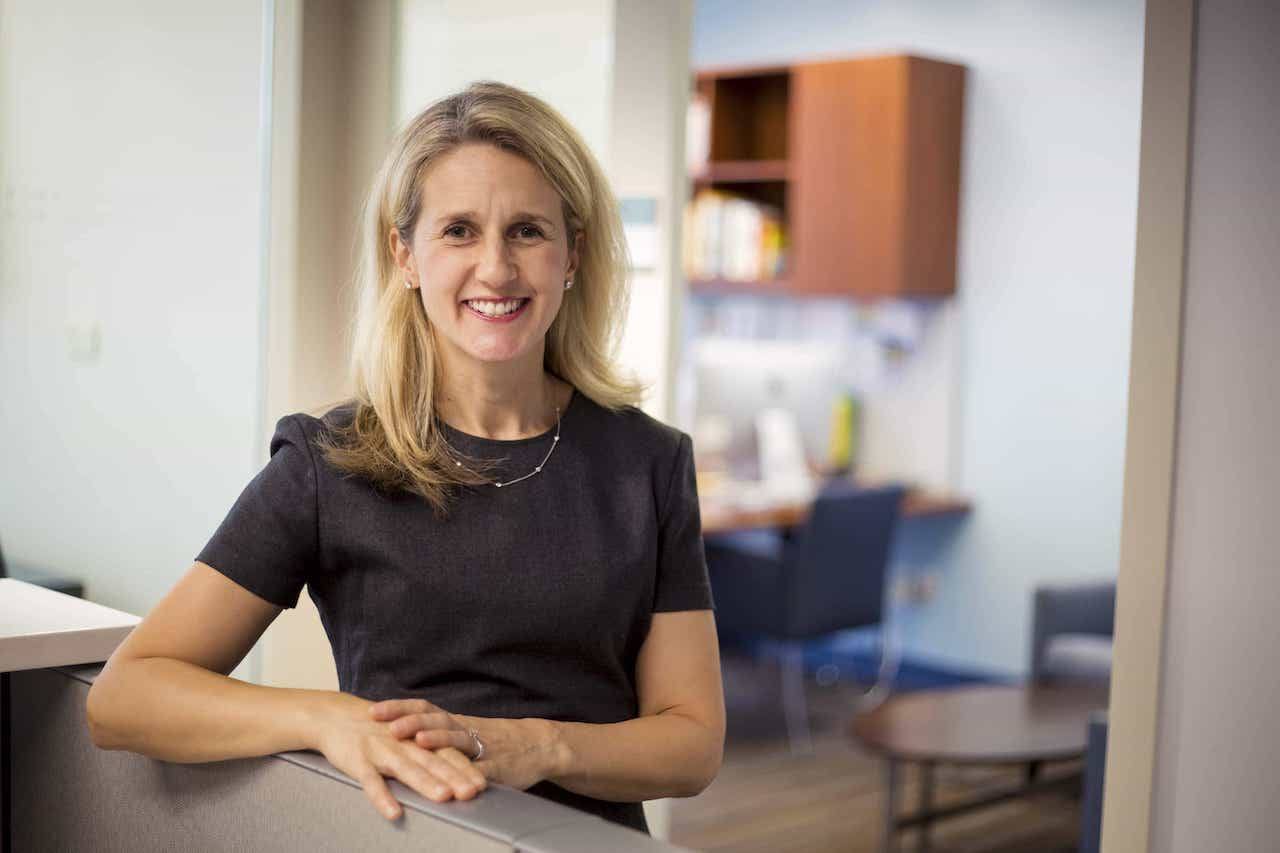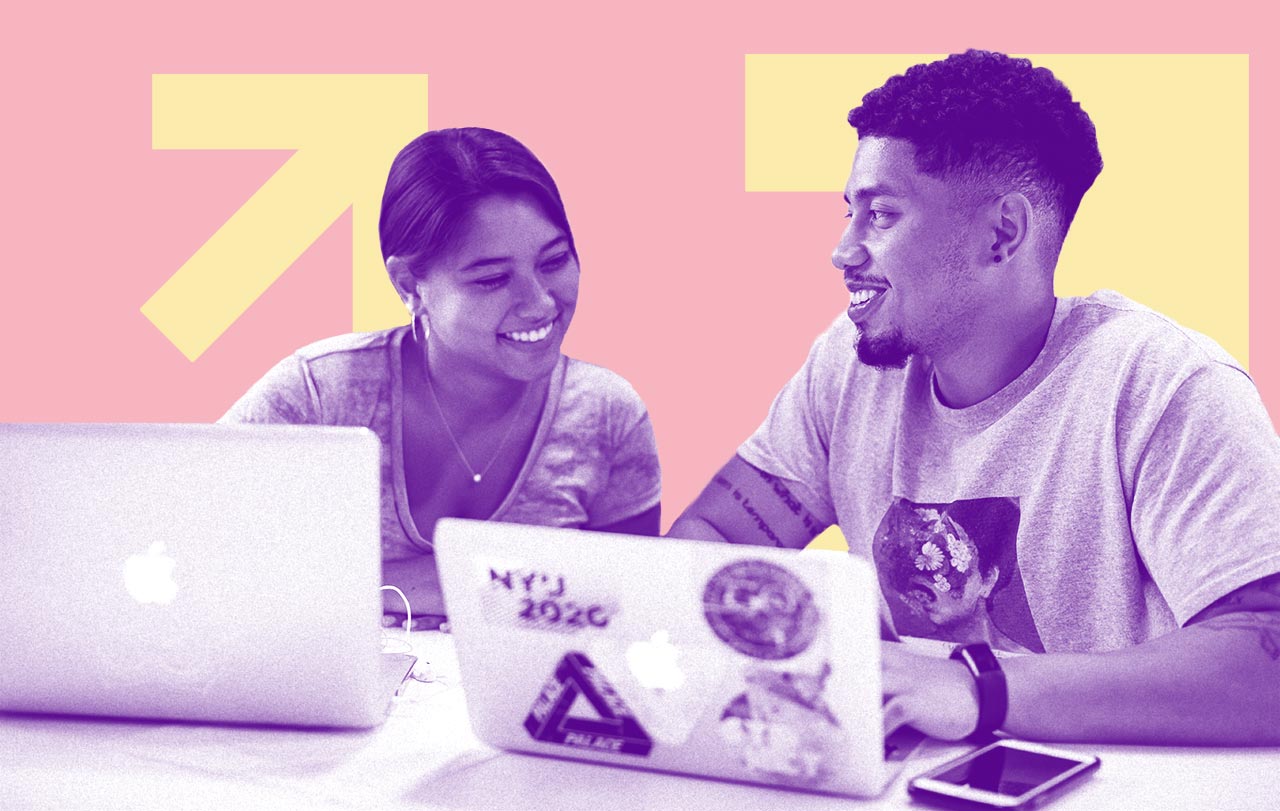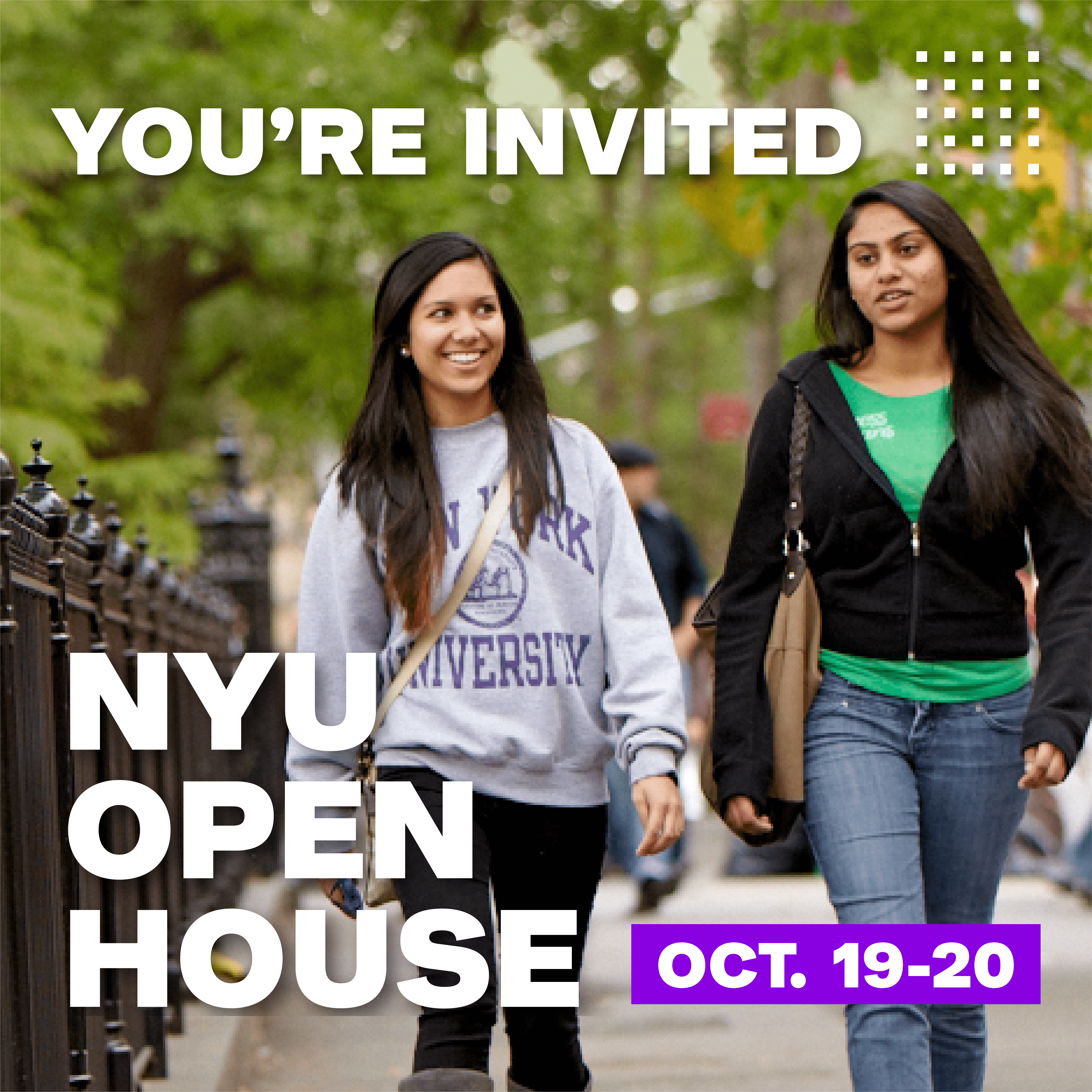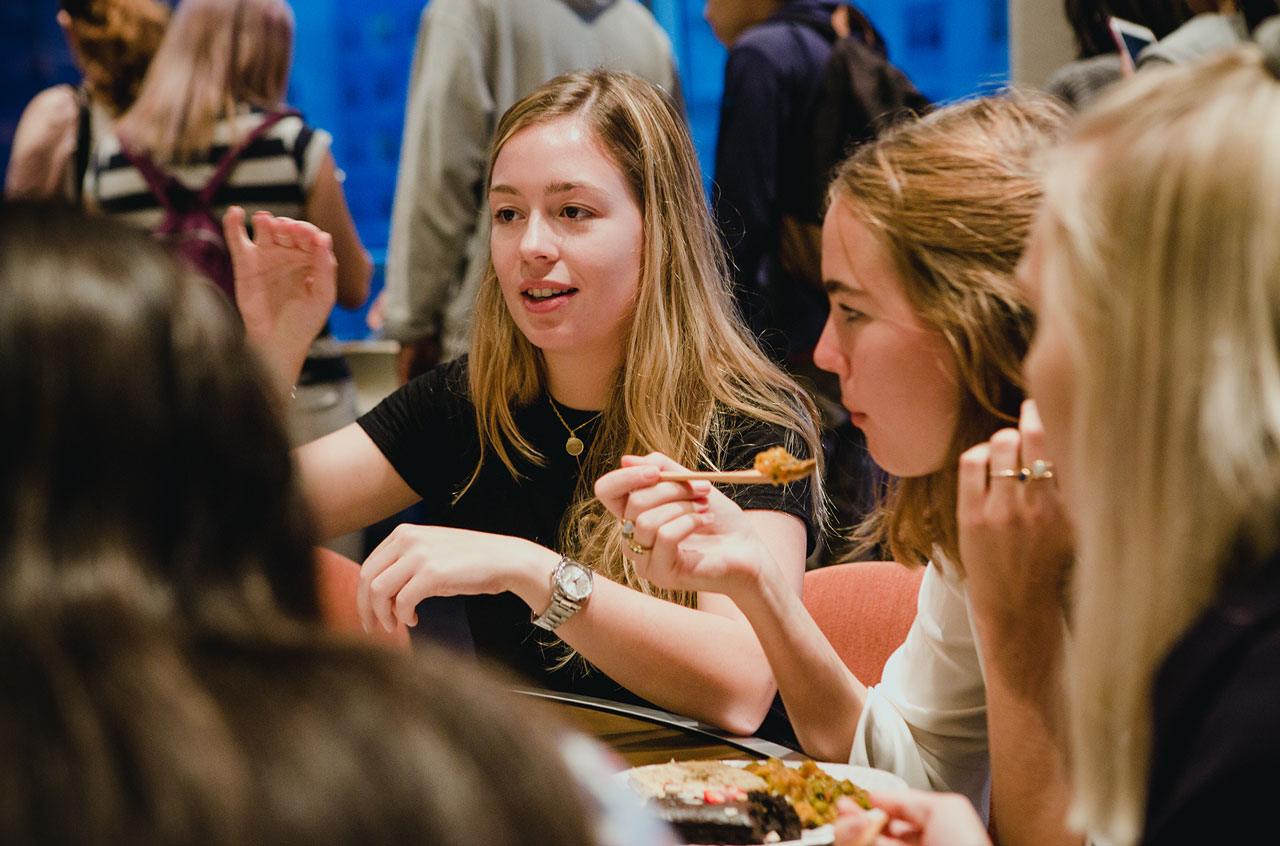
“It all started about three years ago, when a fellow student at the Steinhardt School of Culture, Education, and Human Development put together a cookbook on how to eat well on four dollars a day for her thesis,” says Jon Chin, founder of Share Meals, an app that links food-insecure students with those who have unused meals on their plans. “I thought it would be great to form some sort of alliance with the cookbook author, and so, Open Kitchen was born.”
Open Kitchen Debuts
With self-funding, Jon organized the first two Open Kitchen cooking classes. “We had a small turnout, maybe eight to 10 students in all. But we were encouraged enough to apply for a Green Grant from the NYU Office of Sustainability,” he says. Once the initiative had funding, which is now provided by the Steinhardt Department of Nutrition and Food Studies, Jon and his cohorts held Open Kitchen classes every month in different locations around campus. The classes were led by guest chefs and included tips on food preparation and cooking.
The Goal of Open Kitchen
The main goal of the project, according to Jon, is to make sure students’ diets are healthy. “If students aren’t eating well, they’re not performing well. So one great way to build a stronger community is to show students how to cook healthy food for themselves. How to reduce their grocery bills, and how to keep a sanitary kitchen.”
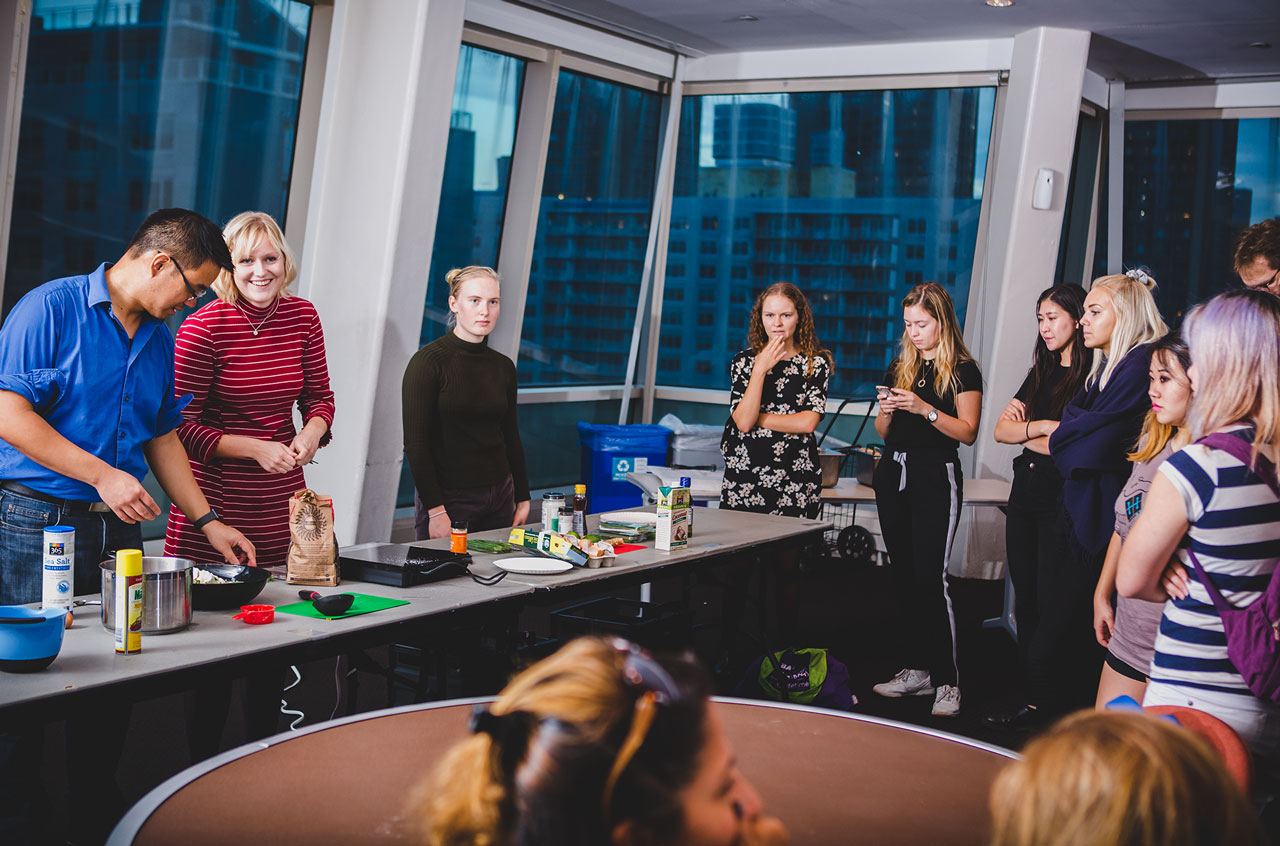
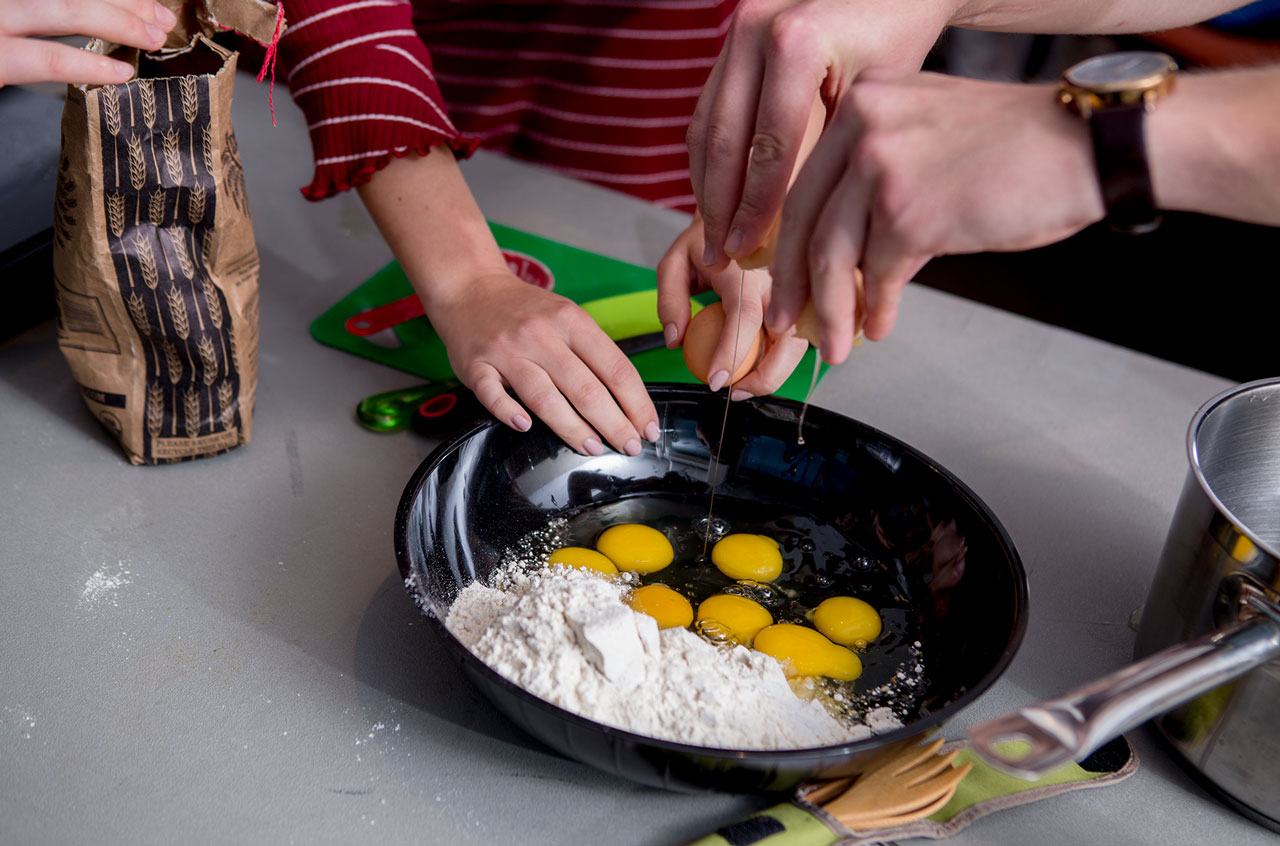
Advantages of Open Kitchen
Jon says, there is another less obvious advantage to the Open Kitchen classes: they encourage community. “It’s not just about giving students recipes. We’re coming together in the same room and we’re cooking and eating together. It’s a lot about interacting with other students and meeting new people you wouldn’t necessarily meet otherwise. I think there’s something really special about that.”
New Food Security Fellowship for Undergraduates
Building on the success of Share Meals and Open Kitchen, Jon has embarked on a new initiative called the Share Meals Trailblazers Fellowship. “We’re partnering with several organizations, most notably the Clinton Global Initiative University, to host a yearlong fellowship for first- and second-year undergraduate students,” says Jon. “Once five to eight undergrads are chosen and are trained to present their ideas professionally, develop innovative ideas on food security, and empower their peers to become leaders in the fight against hunger, they will tour the country and speak at conferences, universities, and public schools about the need to improve food security at home and around the world.”
Student Leaders for Positive Change: Trailblazers
Through Trailblazers, fellows will have the chance to bolster a litany of practical skills, including design thinking, research methodology, and public speaking. With these strengthened abilities, they’ll be primed to assume roles as effective leaders who push for and execute positive change in the social impact areas they care about most. Previous fellows have spoken at Universities Fighting World Hunger, #RealCollege Convening, and the Hunger Action Series.

